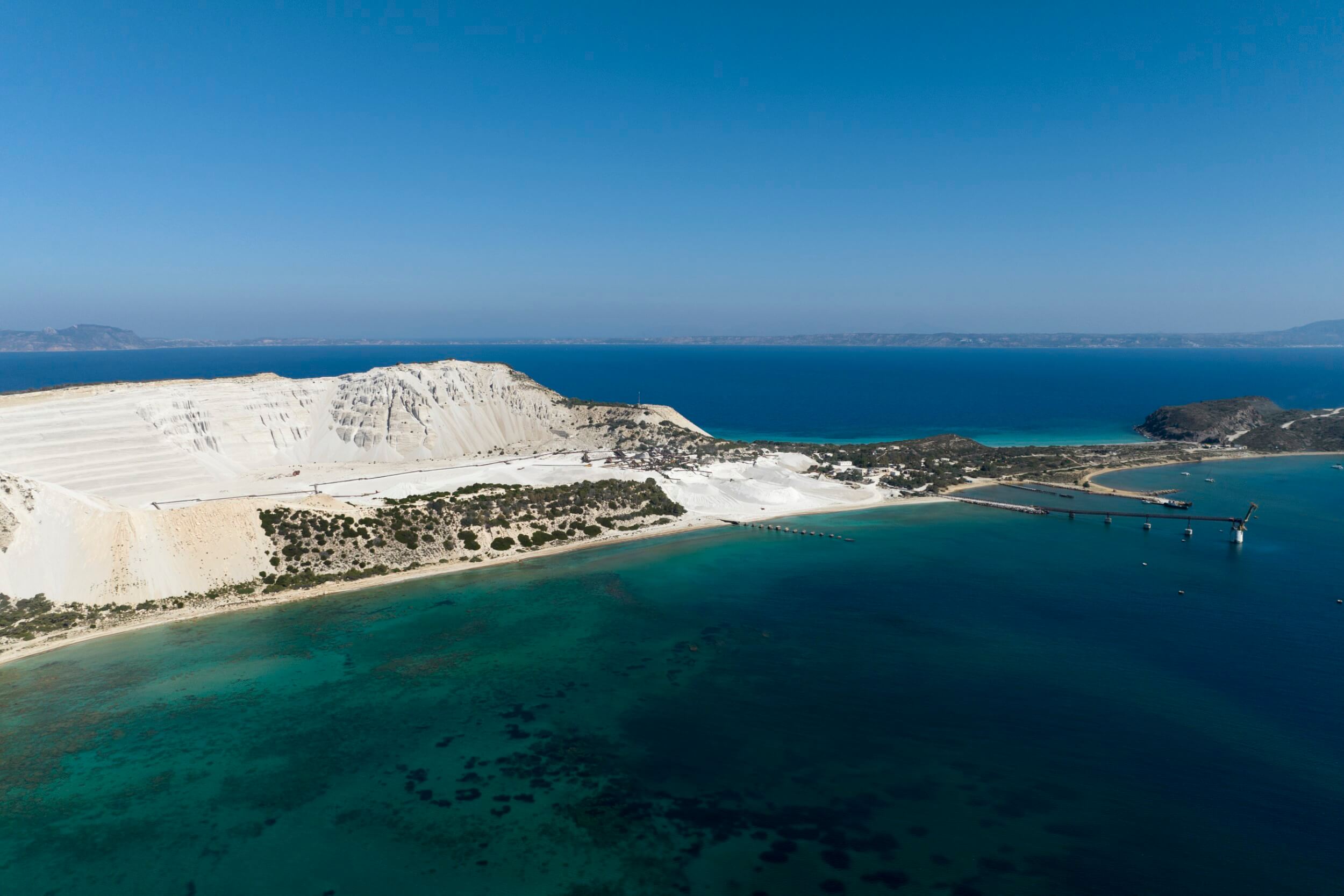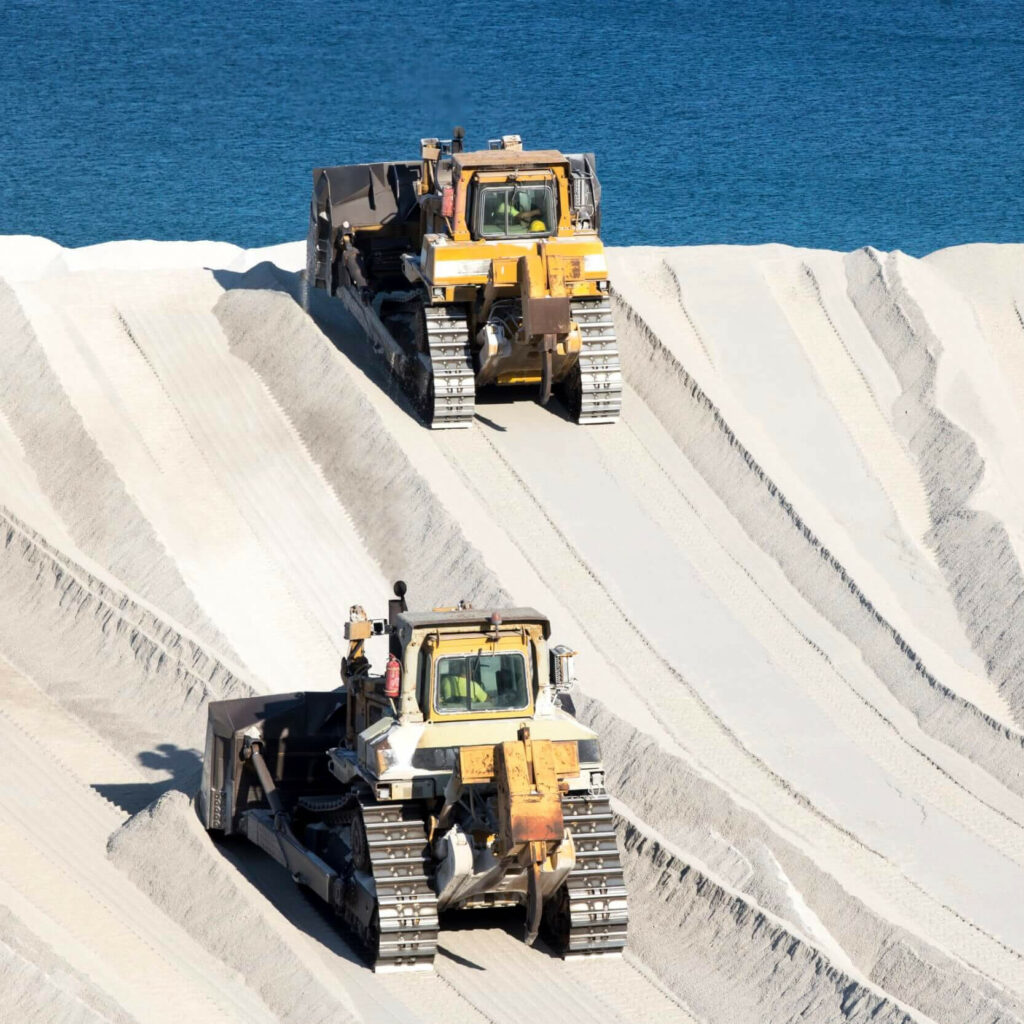BIODIVERSITY PROTECTION

Focusing on the Conservation of
Biodiversity and the Environment

Driven by Purpose, Committed to Impact: Our Journey Towards a Responsible and Sustainable Future
Our daily commitment is
the respect and protection of the environment

Sound environmental management and the quarry’s upgrading are daily priorities.
The quarry has been implementing a specific action plan that focuses on:
- reducing environmental footprint by rehabilitating the landscape & implementing biodiversity management plans;
- protecting marine biodiversity in the broader ship-loading area (through depollution plans and Ship Waste Management Plans);
- recycling the batteries and lubricants of vehicles and machinery; and
- recycling of glass, plaster, paper, tires.
Recognizing the importance of water as a valuable good, we take care to continuously reduce its use in all our operations, aiming at the least possible burden on ecosystems in the communities where we operate. The LAVA pumice mine is located on Yali island, Nisyros, which is remote and rather difficult to access, inhabited only by the mine workers. It cannot meet daily needs for fresh water, as Yali is an anhydrous island without any natural springs or wells. Hence, we have installed a desalination system.
The desalination plant operating in the facility is based on the reverse osmosis method, whereby seawater is processed to separate fresh water from the salts contained, using a membrane that acts as a molecular and ionic filter.
As part of the above mine rehabilitation commitments, endemic plants have been grown in a local nursery and planted in the mine area.
Exploring the best rehabilitation method for the quarry in Yali
According to studies carried out in areas that have been disturbed by human intervention and then left to natural recovery, it has been found that eventually that the landscapes that emerge are of greater biodiversity and higher aesthetic value than those reclaimed through human intervention. In this context and in its effort to better rehabilitate the quarry benches in Yali, LAVA commissioned a study to find a best rehabilitation practice given the extended wind erosion of the benches. As the eroded benches have formed a landscape of particular geomorphological characteristics and natural beauty, it would be possible to allow natural recovery to restore the landscape.

Sound environmental management and the quarry’s upgrading form part of our daily priorities.
The quarry has been implementing a specific action plan that focuses on:
- reducing environmental footprint by restoring the landscape & implementing biodiversity management plans;
- protecting marine biodiversity in the broader ship-loading area (through depollution plans and Ship Waste Management Plans); and
- recycling the batteries and lubricants of vehicles and machinery.
In the context of our commitment to the quarry’s rehabilitation 1,100 saplings have been planted in the past years.

Sound environmental management and the quarry’s upgrading are daily priorities.
The quarry has been implementing a specific action plan that focuses on:
- reducing environmental footprint by restoring the landscape & implementing biodiversity management plans;
- protecting marine biodiversity in the broader ship-loading area (through depollution plans and Ship Waste Management Plans); and
- recycling the batteries and lubricants of vehicles and machinery.
In the context of our commitment to the quarry’s rehabilitation 3,300 saplings have been planted in the past years. Rehabilitation of the quarry in Milos is a challenge, not only because of the island’s soil and weather conditions, but also because it is located in an extremely sensitive area (ΝΑΤURA network), next to tourist facilities. The protected species of the Milos island are the indigenous viper (Vipera scwheizeri) and the threatened species of Mediterranean Seal (Monachus monachus). Quarry operation and rehabilitation plans are designed having in mind the area’s sensitivity within the scope of a broader Biodiversity protection plan.
In addition, the LAVA natural pozzolana mine in Milos is an example of sustainable practice and commitment to environmental protection. Through the installation of rainwater collection and utilization systems, the quarry efficiently exploits a renewable water source. Rainwater is collected from collection surfaces and stored for future use. It is subsequently used for a variety of purposes, such as watering plants, spraying, washing equipment and other needs of the quarry. In this manner, water is used sustainably, reducing dependence on non-renewable sources such as aquifers.
This initiative demonstrates LAVA’s commitment to sustainability and environmental protection. Effective water management in the quarry contributes to the protection of water resources and the preservation of biodiversity on Milos island.

